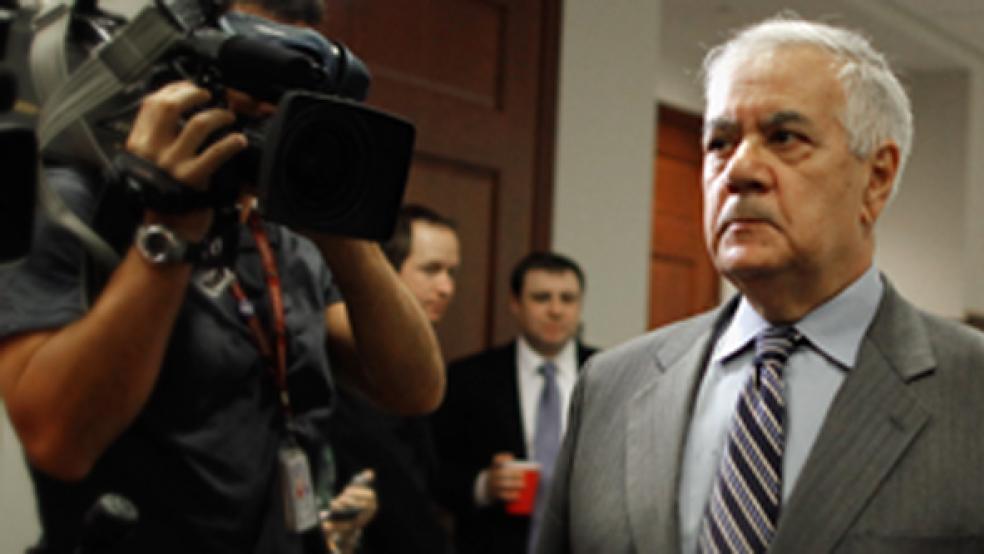During his brief tenure as chairman of the House Financial Services Committee, 71-year-old Barney Frank, the voluble Massachusetts Democrat who is retiring next year after 32 years in Congress, did one thing that could replace “first openly gay Congressman” in the first paragraph of his obituary.
He tried to re-regulate Wall Street.
Given the almost daily attempts by the now Republican-controlled House to undo sections of the financial services reform bill that passed in June of 2010, it is too soon to tell if the Dodd-Frank legislation (so named because it was co-sponsored by former Sen. Chris Dodd, D-Conn.) will even survive, much less achieve its primary purpose of preventing future massive bailouts of the mega-banks that now control the U.S. and global financial landscape.
Criticism of the bill is not just coming from conservatives on Capitol Hill who blame its 300-plus regulations, most of which haven’t been implemented yet, for burying main street bankers in red tape and slowing the pace of economic recovery. (They also claim the financial crisis was fomented by irresponsible lending encouraged by liberals like Frank who pushed Fannie Mae and Freddie Mac to lend money to low-income borrowers who couldn’t really afford homes.)
A growing chorus of critics on the left charge the legislation failed to break up the unholy conjoining of investment banks and commercial banks into behemoth institutions – the two largest, JPMorgan Chase and Bank of America, now have over $2 trillion in assets – that truly are too big to fail.
“Two-thousand-three-hundred pages of legalese and nothing changed,” said William D. Cohan, a former investment banker and author of Money and Power: How Goldman Sachs Came to Rule the World. “There was an historic opportunity to fix Wall Street and it wasn’t done. It wasn’t even close to being done.”
The first step in true reform, the critics say, would have been forcing the banks to decide if they are going to be in the less regulated investment banking business with their own capital at risk, or be in the heavily regulated commercial banking sector. Dodd-Frank’s big failure, the critics say, was its refusal to restore some version of the 1933 Glass Steagall Act, which until its repeal in 1999, prevented commercial banks and investment banks from operating in each other’s space.
The inevitable result was the risky lending tied to exotic financial instruments whose unraveling led to the 2007-09 financial collapse. Federal Reserve Board documents unearthed by Bloomberg News revealed that the Fed gave over $650 billion in emergency loans to the nation’s largest banks at the height of the crisis, in addition to the $700 billion in lending authority granted the U.S. Treasury by Congress.
“It all comes down to incentives,” Cohan said. “They continue to be rewarded for taking risks with other people’s money. Until they’re penalized when they screw up, you’re not going to get them to change their behavior.”
Defenders of Frank’s handiwork say that many of those penalties are, in fact, now in place. The government now has the power to seize failing mega-banks, wipe out stockholders, fire top management and force unsecured creditors – people or institutions that lent the banks money without adequate collateral – to accept reductions in the face value of their loans. A recent simulation of a mega-bank failure organized by the Bipartisan Policy Center predicted Dodd-Frank gave the government adequate powers to manage such a collapse, although it was unclear if it would stop the contagion from spreading to other institutions.
“It’s not correct to say nothing has been done,” said Donald Kohn, the former vice chairman of the Federal Reserve who is now a senior fellow at the Brookings Institution. “We’ve made progress. These guys need to be allowed to fail and Dodd-Frank took a stab at that.”
But the real test of the reforms won’t come until the banking sector blunders into another serious financial crisis, which could be sooner than anyone expected. The unfolding events in Europe could force the European Central Bank to write down the value of bonds issued by the heavily indebted and recession-plagued economies of southern Europe -- Greece, Italy and Spain. That, in turn, could spill over into the U.S. banking sector, which has considerable and undisclosed exposure to European debts.
“There is huge risk coming from Europe,” Kohn said. “The U.S. economy is vulnerable to developments there because of deep ties to European institutions.”
Though financial markets are temporarily relieved that European authorities over the weekend pledged to provide liquidity to governments threatened with being shut out of credit markets, they made similar promises in July. Should that situation unravel again, the contagion will no doubt leap the Atlantic and possibly provide the ultimate test of Barney Frank’s legacy.
At his Boston press conference today, Frank expressed concern that his landmark legislation wouldn’t survive long enough to get that test.
"A funny thing happened on my way to retirement," Frank said. "A very conservative Republican majority took over the House... [and] the things I fought hardest for could be in jeopardy."





